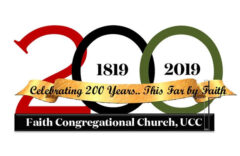At the Crossroads of Church and Race
At the Crossroads of Church and Race The Gateway Church in the Dallas-Forth Worth area is one of the largest churches in the country. Ilana Panich-Linsman for The New York Times Campbell Robertson I grew up in a little Baptist church in small-town Alabama. The Baptist part is inherited, like baldness or dimples: Both of my […]
![]()
